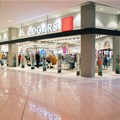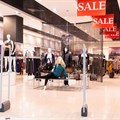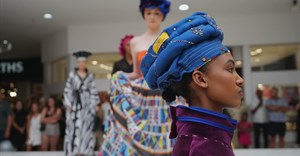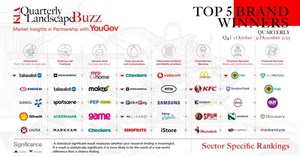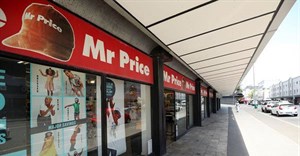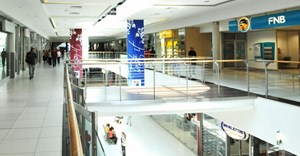Trending




 Does anyone know what content is any more?Justine Drake
Does anyone know what content is any more?Justine Drake
Elections 2024
Jobs
- Temp Administrator George
- Store Manager Port Elizabeth
- Store Manager George
- Branch Administrator Cape Town
- Financial Manager Vereeniging
- Store Manager, Assistant Store Manager and Supervisors Alberton
- Retail Executive Mbombela
- Retail Promoter Mbombela
- Retail Promotional Agent Mbombela
- Store Leader Durban
Mr Price reveals impact of SA lockdown and its plans to exit Nigeria
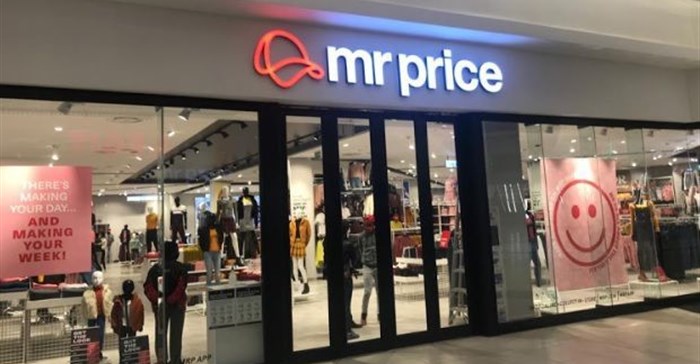
Mark Blair, chief executive of Mr Price Group told analysts at the group’s full-year results presentation on Thursday that the company has hit too many roadblocks in the West African country.
"Quite frankly I'm not prepared to invest any further, whether it's investment in time or in money, into a country that is volatile as it is.
"In the early days we were making money but now we just came up against too many roadblocks, whether it's getting the money out, etc," Blair said.
The group has closed four of its five stores in Nigeria and expects to close the final one in the coming months.
During the results announcement, Mr Price CFO Mark Stirton said the company now wants to concentrate more on its SA operations which is why it has also discontinued its operations in Poland and Australia in 2019.
On Thursday, the group reported a 2.1% rise in total revenue from continuing operations for the 52 weeks ended 28 March, to R23bn with retail sales increasing by 1.5% (comparable stores -1.4%) to R21.2bn.
The company said it expects “a lot of distress among retail peers” in South Africa.
It has identified R300m worth of cost-saving initiatives, which are largely related to employment costs and also include a 23% reduction in budgeted capital expenditure for the 2021 financial year. As part of measures of conserving cash, the company did not declare a final dividend.
April sales plummet almost 90%
In the month of April 2020, all the group’s South African stores were closed, with retail sales down 89.1% off a base of R1.9bn in April 2019. However, following the relaxation of lockdown restrictions to Level 4 from 1 May 2020, high levels of pent up consumer demand were experienced, Mr Price Group said.
Retail sales for the period 1 May 2020 – 20 June 2020 were up 12.0% (Mr Price Apparel, +16.1%, Mr Price Sport, +7.7%, Miladys, -13.8%, Mr Price Home, +1.3% and Sheet Street, +15.2%).
Pent up demand for apparel in May shifted to homewares in June, as lockdown restrictions on merchandise permitted to be sold were fully lifted, the company said.
Consumers continue to favour transacting in cash. In May and June combined, cash sales increased 16.7% while credit sales declined 9.4%. The group said it anticipates that the credit landscape will deteriorate further positioning it well to capture market share.
“Various factors over this period have led to unusually high levels of consumer demand: the need for winter & kids’ merchandise, increased SASSA grant payments, debt payment holidays, TERS claims and constrained spending under restriction Level 4 and 5,” Mr Price said.
The company experienced a decline in cash reserves of approximately R2bn during the five-week lockdown period, but these levels have since bounced back, with the easing of lockdown restrictions.
Online sales growth, shift in store location
“Online sales grew strongly and were up 90.1% over the period. Mr Price Apparel and Mr Price Sport sales growth exceeded 100%. It is still to be seen whether this is a permanent step change in consumer behaviour," the company said.
In addition to the changing online consumer behaviour, Mr Price said a shift in store location has been notable. "Super regional centres lagged smaller formats due to reduced trading hours and customers preferring to shop at more convenient locations."
“The combination of strong online sales and store locations which support customer’s needs positions the group well as a leading omnichannel retailer in this changing landscape.”
Mr Price said it continues to grow its footprint and opened 71 new stores and expanded 16 over the past year. After closing 16 stores and reducing the size of 28, total weighted average space was up 2.2%, taking total corporate-owned stores to 1,378.
New store capex was allocated mainly to micro, small and medium formats aiding group store growth of 4.2%. “This supports the group’s high trading densities and positions its store network favourably post Covid-19,” it said.
The group said that current and forecast spread of the virus in South Africa remains a concern given its impact on society due to loss of life and the devastating financial impact on businesses and citizens. "It is not possible at this stage to quantify the economic impact on the group, but ongoing operational disruptions and future uncertainty remain significant challenges," the company said.



